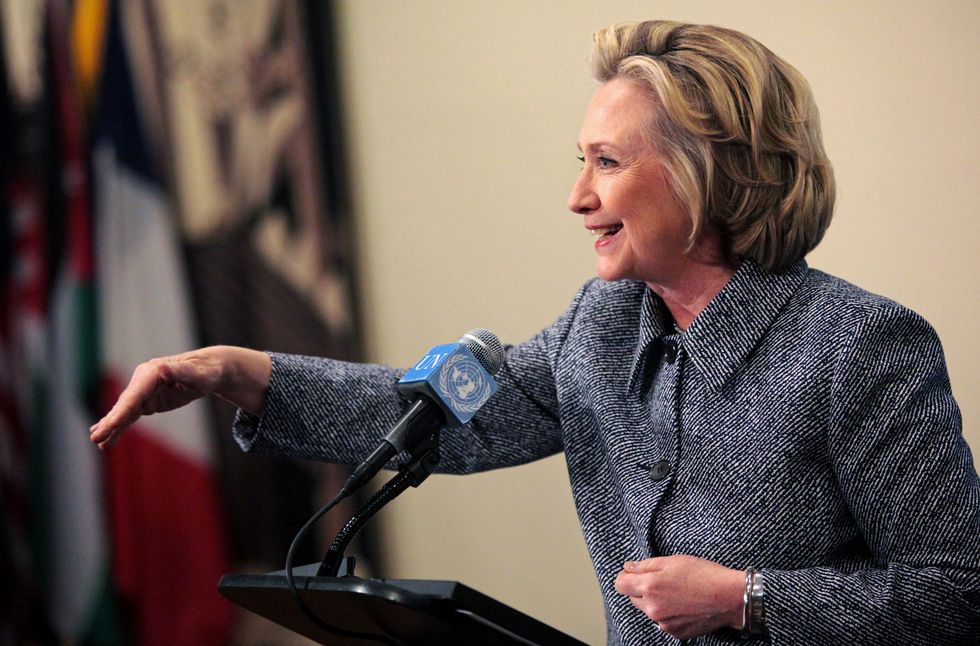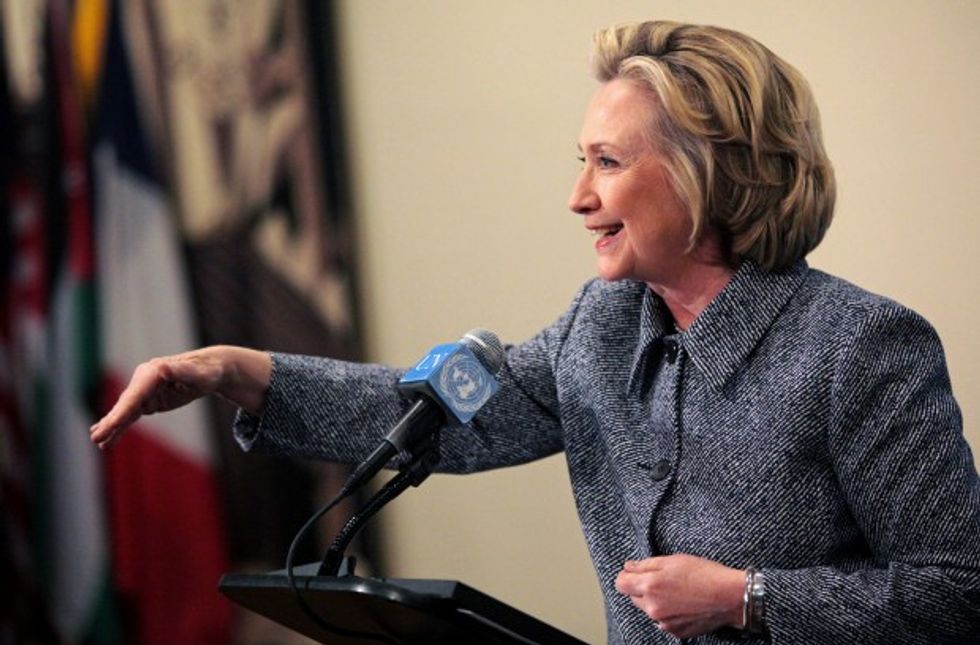
Hillary Clinton speaks to the media in March 2015. (Getty Images/Yana Paskova)

The most popular hypothesis that explains how Hillary Clinton was going to avoid prosecution—plausible deniability—now pales in comparison to the airtight defense of Affluenza Politics.
In a recent article by the Daily Caller, Hillary Clinton admitted that, although she did not have a security clearance, “[she] had direct access to all of the decision-makers, was briefed on a range of issues, [and] often provided classified information.” Astonishingly, this now establishes that the former secretary’s mishandling of classified material originates over 20 years ago, during her time as first lady of the United States.

What was initially explained as poor judgment, has now developed into a history of incompetence concerning the safeguarding of classified material. Although most pundits were split on whether Hillary could be indicted, it is now clear that all of the smoking guns are irrelevant, and Hillary will most certainly escape any serious punitive action.
Affluenza Politics is a psychological disorder that is experienced by politicians who have operated as a member of a protected class for an extended period, and is similar to Affluenza, which often manifests itself in over-privileged children and young adults that hail from affluent families.
Though much of the scholarship on this disease is still emerging, most clinical professionals agree on a few identifiable symptoms: feelings of guilt, political isolation, and chronic legal infringement.
Can be real or imagined, but tend to manifest as constant shifts in personal beliefs and convictions. Although political campaigns often make promises to constituents for political expediency, the feelings of guilt that stems from Affluenza Politics results from a prolonged commitment to portraying a false sense of self or personality façade. This is often manifested in drastic transformations that are otherwise unexplainable—referred to as “acute makeovers.”
Hillary Clinton has a long history of politically expedient decisions. However, Mrs. Clinton’s recent transformation from a self-proclaimed moderate into a full-fledged progressive is a textbook example of an “acute makeover.” Another indication of this symptom is the sufferer’s tendency to deny their former self adamantly, regardless of legitimate evidence that proves otherwise. Health professionals encourage members of the mainstream media to sympathetically avoid confrontations that seek to disprove the victim’s imagined persona and “gotcha” style questions.
This is the result of years spent on the campaign trail and in the political limelight. Most sufferers admit that the fame and fortune—once an appealing side effect—slowly becomes a chore that takes away valuable time that is better served amongst a tight-knit group of same-minded advisers—also referred to as their “echo-chamber.”
Though many have speculated that Hillary despises mingling with potential voters and rope-line style events, recent reports have now confirmed that she has historically been reluctant to spend more face time than required with constituents. According to Solis Doyle, a former Clinton campaign manager in 2007, Hillary doesn’t like interacting with voters and prefers the company of policy "experts." Although this may seem odd since her husband, Bill Clinton, was known for his retail politics, health professionals maintain that political isolation is not universal but a chronic condition usually resulting from insecurity and low self-respect. Considering her husband’s misogynistic tendencies, Mrs. Clinton easily fits into this category.
This is an episodic disregard for legal norms and protocols. This symptom usually stems from a “political upbringing” where the sufferer is socialized to believe that political clout and ascendency is a justification for snubbing conventional procedures and decorum.
While most politicians can be guilty of this symptom, Hillary Clinton has been at the center of controversy and scandal since Whitewater in 1978. Many professionals take into consideration the fact that she was married to both a governor and two-term president of the United States. However, since leaving the White House as a former first lady, and successfully becoming a senator and secretary of state, Mrs. Clinton has continued to collect personal scandals that are uniquely her own. Of particular note are Benghazi, foreign donations to the Clinton Foundation, and State Department emails—the latter of which has led to her diagnosis of Affleunza Politics.
A career in politics does not necessarily doom an individual to a future diagnosis. Still most professionals agree that the longer a person is a member of the political class, the more likely they are to develop the condition. Most suggestions from health care professionals for the prevention of AP include simple practices such as transparency, accountability, independent reviews, and term limits.
The good news, Affluenza Politics is curable, and recovery usually consists of a leave of absence or “electoral hiatus.” However, statistics show that 90 percent of politicians with the disease that choose to take an electoral hiatus never return to public office. Although this may discourage political figures diagnosed from seeking treatment, the undeniable benefit is the politician’s ability hold on to what little self-respect they still maintain.
–
TheBlaze contributor channel supports an open discourse on a range of views. The opinions expressed in this channel are solely those of each individual author.